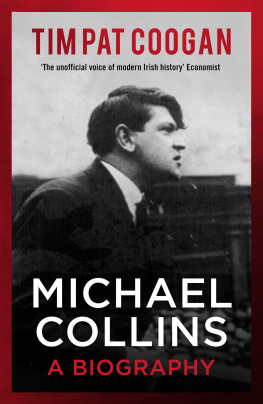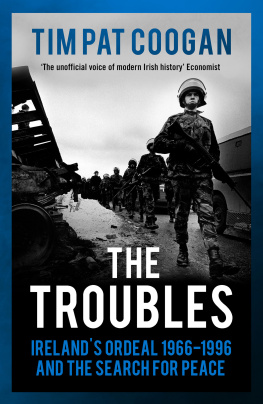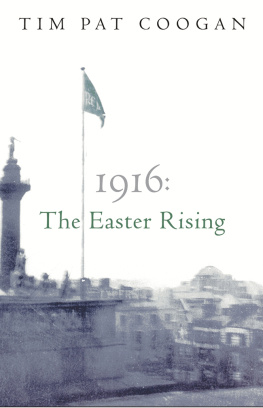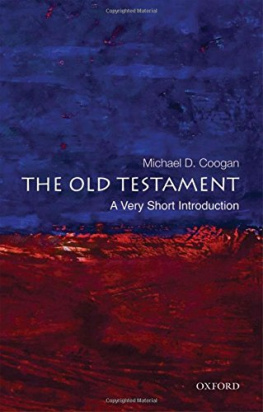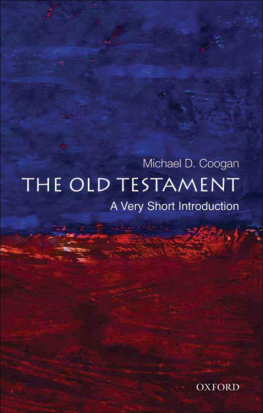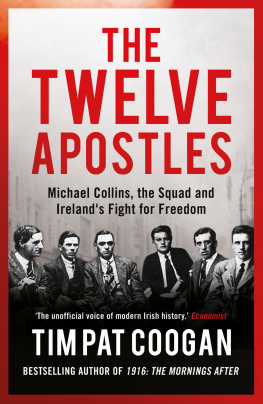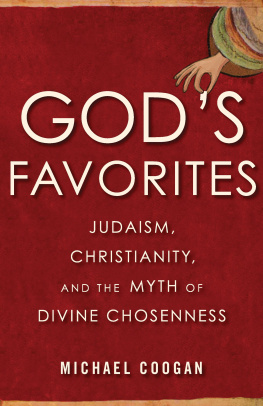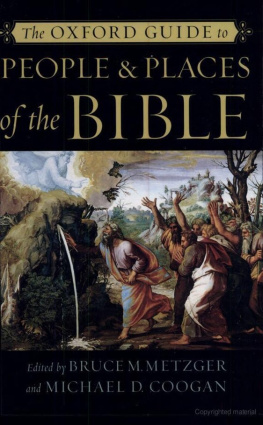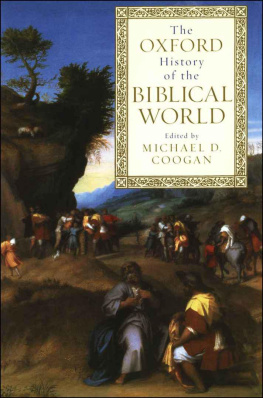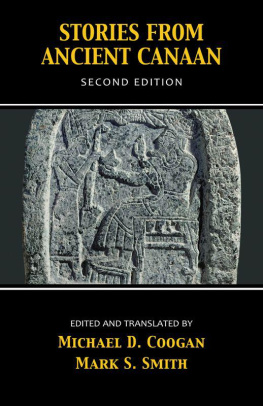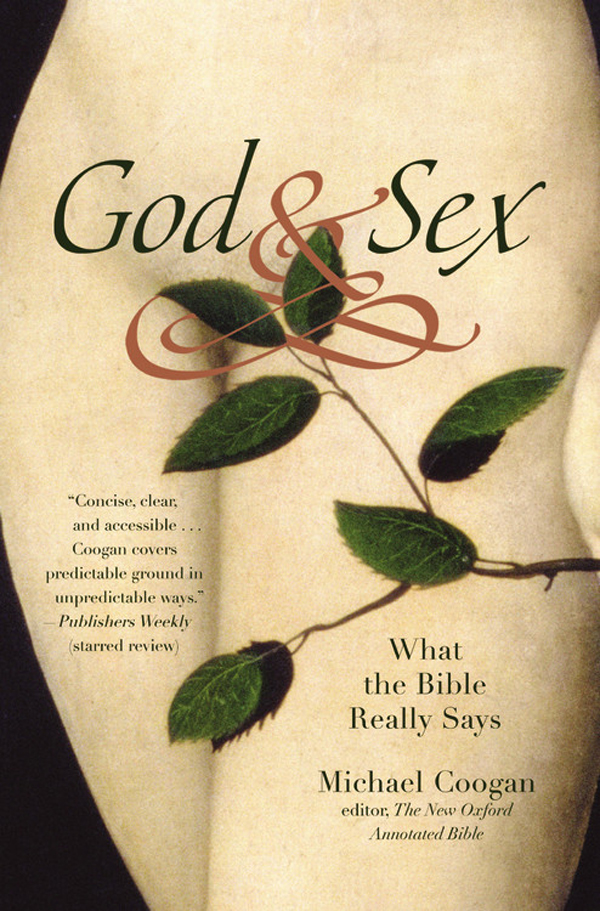Copyright 2010 by Michael Coogan
All rights reserved. Except as permitted under the U.S. Copyright Act of 1976, no part of this publication may be reproduced, distributed, or transmitted in any form or by any means, or stored in a database or retrieval system, without the prior written permission of the publisher.
Twelve
Hachette Book Group
237 Park Avenue
New York, NY 10017
Visit our website at www.HachetteBookGroup.com
www.twitter.com/grandcentralpub
Twelve is an imprint of Grand Central Publishing.
The Twelve name and logo are trademarks of Hachette Book Group, Inc.
The publisher is not responsible for websites (or their content) that are not owned by the publisher.
Second eBook Edition: November 2011
ISBN: 978-0-446-57413-6
Michael Coogan is Professor of Religious Studies at Stonehill College, Lecturer on Old Testament/Hebrew Bible at Harvard Divinity School, and Director of Publications for the Harvard Semitic Museum. He is editor of The New Oxford Annotated Bible, and has edited and written several books on the Bible and its interpretation, including The Old Testament: A Very Short Introduction. He and his wife, Pamela Hill, live in Concord, Massachusetts.
ACCLAIM FOR
God and Sex
GOD AND SEX offers the best scholarship on a topic of timeless fascination in a form thats engaging for general readers, but also brings information that may surprise even some scholars.
Publishers Weekly
Here a seasoned interpreter of Scripture shows how ancient authors viewed the world of sexuality, and how these ancient reflections can influence modern thinking [on] issues ranging from adultery and premarital sex to same-sex relations and heterosexual sex within marriage.
Bart D. Ehrman, New York Times bestselling author of Misquoting Jesus
Michael Coogans excellent book is a reminder that the Bible cuts both ways, and that in the right hands it might once again become a force for positive social change.
Toronto Globe and Mail
Michael Coogan is an extraordinary writer on the culture of the Bible and the ancient Near East He always manages to make his scholarship accessible to the general reader. Its hard to imagine readers not being interested in the subject of sex and God, especially in the hands of a writer as skillful as Coogan.
Thomas Cahill, former director of religious publishing at Doubleday and author of the bestselling Hinges of History series
A critique as radical as this one will astonish conservatives It will embolden social activists glad to weaken restraints rooted in traditional understandings of scripture. Expect media attention and controversy.
Booklist
Quick, clear, and no-nonsense Coogans chapters [are] arranged with more care than much of Scripture.
PopMatters.com
For Pam
with love
as always
The Bible is constantly in the news. Pastors and popes, politicians and pundits regularly cite it as an unchallengeable authority on all sorts of issues, to undergird widely divergent points of view. In the United States especially, where more than ninety percent of homes have a Bible, that very old book is regularly cited in the culture wars about family values, most of which have to do with issues of sex and gender.
At its biennial assembly in August 2009, the Evangelical Lutheran Church in America debated and ultimately approved a resolution allowing its clergy to have lifelong, monogamous, same-gender relationships.
As a resident of Massachusetts, I have had a front-row seat for the controversy concerning same-sex marriage. In 2003, that states highest court ruled that prohibiting same-sex couples from marrying violated the Massachusetts Constitution. it was claimed, marriage has been between one man and one woman; in fact, not until late in the biblical period was monogamy the norm. But despite their exaggerations, opponents of same-sex marriage, and of homosexuality in general, much like the advocates of slavery in the nineteenth century, have biblical authority on their side, to a point. Yet the other sides in these debates also have appealed to the Bible in support of their views, and they too are right, also to a point.
But what is the Bible? Although the very word bible means book, the Bible was not delivered to humanity as a complete book, written by God and shrink-wrapped in a shipment from Amazon or available for download on a Kindle or an iPad. Rather, the Bible is an anthology, a selection of texts from ancient Israel, early Judaism, and, for Christians, from the first hundred years or so of Christianity. Those texts are called books, and like other These books were written over the course of many centuries, and, like all other books, they reflect the presuppositions and prejudices, the ideas and ideals of their authors (almost entirely men) and of the societies in and for which they were written.
Similar to other anthologies, the Bible is selectiveit is not a complete collection. Biblical writers often refer to other books that they used as sources. My personal favorite is the Book of the Wars of the L ORD , mentioned as the source of an ancient poem quoted in the book of Numbers.to have a special authority. We can make educated guesses about why some writings were omitted. Some were probably considered heretical by religious leaders as they formed their canons, and others may not have had a proper pedigree. Many of these noncanonical writings have survived, however, and they shed important light on the background of the books of the Bible.
The authors of those books were in essence interpreting their experience of God and its implications for their lives. For the ancient Israelites, that God was Yahweh, conventionally rendered the L ORD and worshipped continually ever since by Jews, Christians, and Muslims under different names and titles. As Yahweh, he is reported to have revealed himself to Abraham, Moses, the prophets, and others. But these putative revelations are often inconsistent. For example, in the Ten Commandments, Yahweh declares that he punishes sons for the sins of their fathers to the third and fourth generation. But centuries later, speaking to the prophet Ezekiel, he seems to have changed his mind:
A son shall not suffer for a fathers iniquity, nor shall a father suffer for a sons iniquity; the righteousness of the righteous shall be his own, and the wickedness of the wicked shall be his own.
Clearly, different writers had different views. Inconsistencies like these require first that readers of the Bible who consider it authoritative read all of it, not blithely picking only passages that coincide with their own views. Second, such inconsistencies invite, even demand interpretation: if scripture itself reflects developing or at least differing views, then its readers must scrutinize them carefully, critically. This is especially true given the profound influence the Bible enjoys.
Unraveling the complicated history of the formation of the Bible has been the substance of the work of biblical scholars since the Enlightenment. Theyor rather, wehave been able to trace the development of biblical religion and its various schools of thought, and have posited multiple sources within the Bible itself to explain its repetitions and inconsistencies. A majority of biblical scholars agree on both methods and results. But unhappily we have not succeeded in changing the way most nonspecialists and even many in the clergy think about the Bible. People still maintain that the Bible is Gods word, plain and simple: that God is the author of scripture. Even nonscholars can see problems with this. If God wrote the Bible, he is a forgetful writer. Did he give Moses the Ten Commandments on Mount Sinai or Mount Horeb? Did David kill Goliath or did Elhanan? Was the Last Supper a Passover meal or not? For each of these questions and innumerable others, the Bible gives more than one answer. If God wrote the Bible, he is also a terrible writerover and over, the same story is told and retold, with many changes and in wildly divergent styles. These inconsistencies and repetitions can only be explained by multiple human authors. It is their writings that were collected into the mini-library that eventually became the Bible, and their writings that need to be interpreted.


